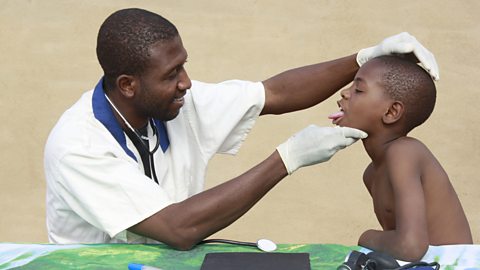Primary health care benefits
developing countryA country that has little industry and lacks access to healthcare or education. face a number of challenges in providing effective health care for their populations. They often have limited money to fund health care and large sections of the population may be difficult to reach.

This is because they may live in rural areas, roads and other transport may be poor or the physical landscape may be difficult to cross.
Providing basic primary health care in local settings is a way to meet some of these challenges. This strategy has the following benefits:
- Increases health care for all of the people in the country and improves life expectancyThe average number of years a person is expected to live depending on where they live..
- Provides hope of basic health care for all when budget and manpower is limited.
- Training costs are very low. In India training costs $150 per health worker per year.
- Workers are locally known, respected, accepted and trusted.
- Self-help schemes allow local communities to look after themselves, improving their confidence.
- With a healthier population, the country can become wealthier as the people are more productive.
- Emphasis is on prevention. Stopping people becoming sick in the first place saves the country money on health care costs.
- Only serious cases go to hospital, therefore reducing the burden on hospitals.
- In many countries, an attempt has been made to establish a development of local clinics to work together to prevent and treat disease.
- Developing primary health care has become national policy in India.
- Aid focusing on primary health care is very effective, much more so than building a large hospital which will only deal with limited cases.